Religious Education Curriculum
“My religion is very simple. My religion is kindness.”- Dalai Lama
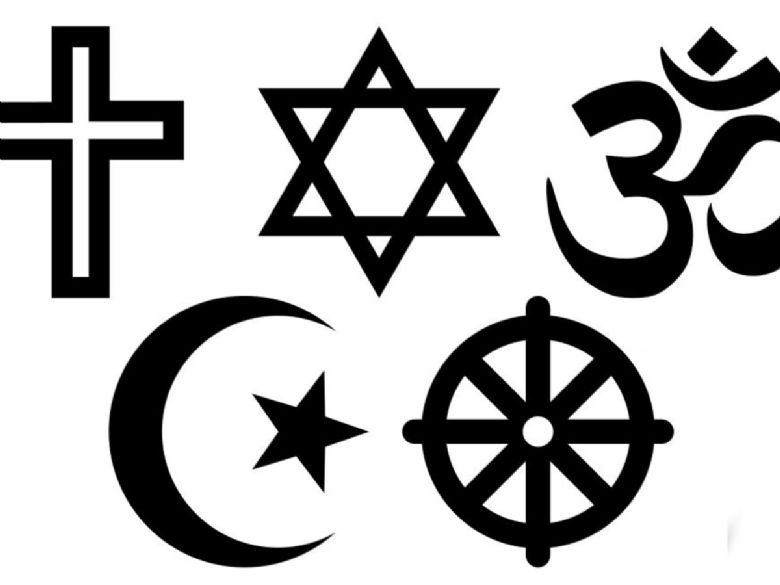
Intent - Does our Religious Education curriculum inspire?
- To deliver a deeper understanding of different religions and beliefs (following the Lincolnshire Agreed Syllabus for RE (LAS:RE) and Discovery RE), resulting in greater tolerance, understanding and respect that allow them to appreciate all religions and beliefs, and those who practice them, now and in the future.
- To provide children with the key knowledge and vocabulary related to a range of different religions and beliefs.
- To have an enquiry-based approach; to encourage children to want to ask questions; to read (appropriate) religious or belief-based texts; to be self-led in finding answers and relating those answers to help form their own beliefs and develop a sense of awe, wonder and mystery.
- To provoke challenging questions about the meaning and purpose of life, beliefs, the self, and issues of right and wrong, commitment and belonging, fostering personal reflection and spiritual development.
- To encourage children to explore their own beliefs (religious or non-religious) in the light of what they learn, as they examine issues of religious belief and faith and how these impact on personal, institutional and social ethics.
- To enable children to build their sense of identity and belonging, which helps them flourish within their communities and as citizens in a diverse society.

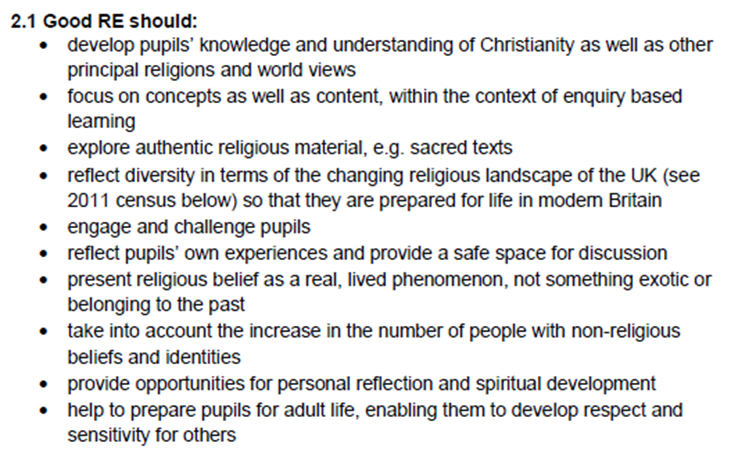
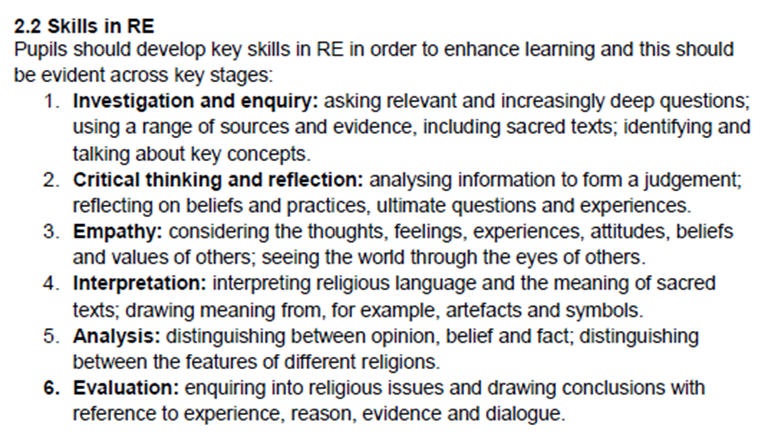
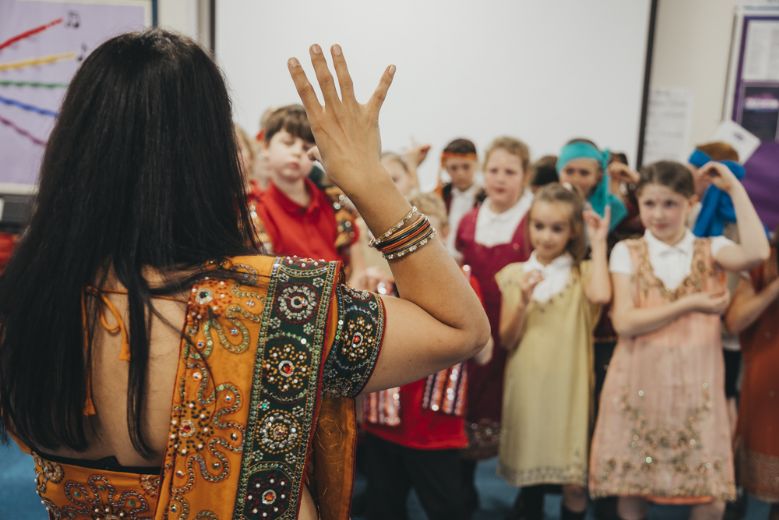
Implementation
At South View Community Primary School, we follow the Lincolnshire Agreed Syllabus, supported by Discovery RE. Our curriculum is taught weekly to ensure that children revisit key learning regularly which enables them to build upon prior knowledge and develop a good understanding of different religions, aiding them in developing their own beliefs and spirituality.
In Foundation Stage, children begin by focusing on the building blocks of RE such as the ideas of special people and places, ways that people celebrate and learn about religion though stories.
In Key Stage One, children focus on Christianity and Islam and look at Judaism, as a comparison religion, as part of the additional units from the Lincolnshire Agreed Syllabus.
In Key Stage Two, children build further upon their learning from Key Stage One by continuing to study Christianity and Islam as well as introducing Hinduism. Children are also introduced to Humanism as a world view.
In the Academic year 2022-2023 the whole school curriculum has been adjusted due to gaps in prior knowledge. Children in Year 5 and 6 will complete the learning from Year 4 to ensure that key knowledge from Islam has not been missed.
In the Academic year 2023-2024 the whole school curriculum has been adjusted due to gaps in prior knowledge. Children in Year 6 will complete the learning from Year 5 to ensure that key knowledge from Hinduism and Christianity has not been missed.
Our curriculum and units have been planned and sequenced so that prior learning is built upon and children make links within and between different religions and world viewpoints.
Children use different skills to deepen their understanding and the knowledge taught: investigating, reflecting, recalling and retelling, exploring, discussing and empathising so that children can discuss and compare the lives of people they have studied from a variety of different religions.
At South View, children are also involved in class and whole school assemblies to further develop their understanding of different religions and develop respect and tolerance of different beliefs and cultures.
Visits to local places of worship, visitors from different religions to our school and themed days also enrich the curriculum at our school.
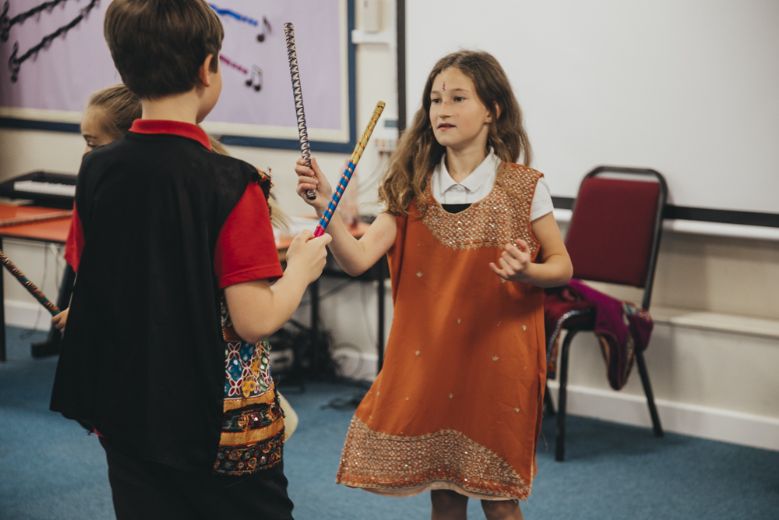
Impact
Our children make progress by knowing more and remembering more which enables them to make links between different religions and develop their own sense of belief.
At South View the impact of our RE curriculum can be measured by:
- Children showing respectful behaviour to all within our school setting and outside of school in the wider community and beyond.
- Children demonstrating a positive attitude towards people of any religion and showing an understanding of cultural beliefs different to their own.
- Assessing children’s understanding of each unit’s key enquiry question at the end of each unit.
- Images and videos of the children’s learning.
- Marking of written work in books.
- Interviewing the pupils about their learning (pupil voice).
- Exploring children’s RE journals and their learning journey within.
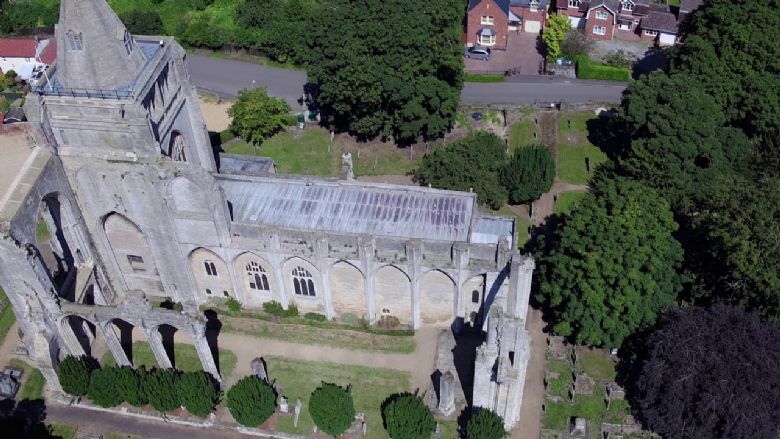
History of the Abbey of Crowland
Crowland Abbey was a monastery of the Benedictine Order in Lincolnshire, sixteen miles from Stamford and thirteen from Peterborough. It was founded in memory of St. Guthlac early in the eighth century by Ethelbald, King of Mercia, but was entirely destroyed and the community slaughtered by the Danes in 866.
Refounded in the reign of King Edred, it was again destroyed by fire in 1091 but rebuilt about twenty years later by Abbot Joffrid. In 1170 the greater part of the abbey and church was once more burnt down and once more rebuilt, under Abbot Edward. From this time the history of Crowland was one of growing and almost unbroken prosperity down to the time of the Dissolution. Richly endowed by royal and noble visitors to the shrine of St. Guthlac, it became one of the most opulent of East Anglian abbeys; and owing to its isolated position in the heart of the fen country, its security and peace were comparatively undisturbed during the great civil wars and other national troubles.
